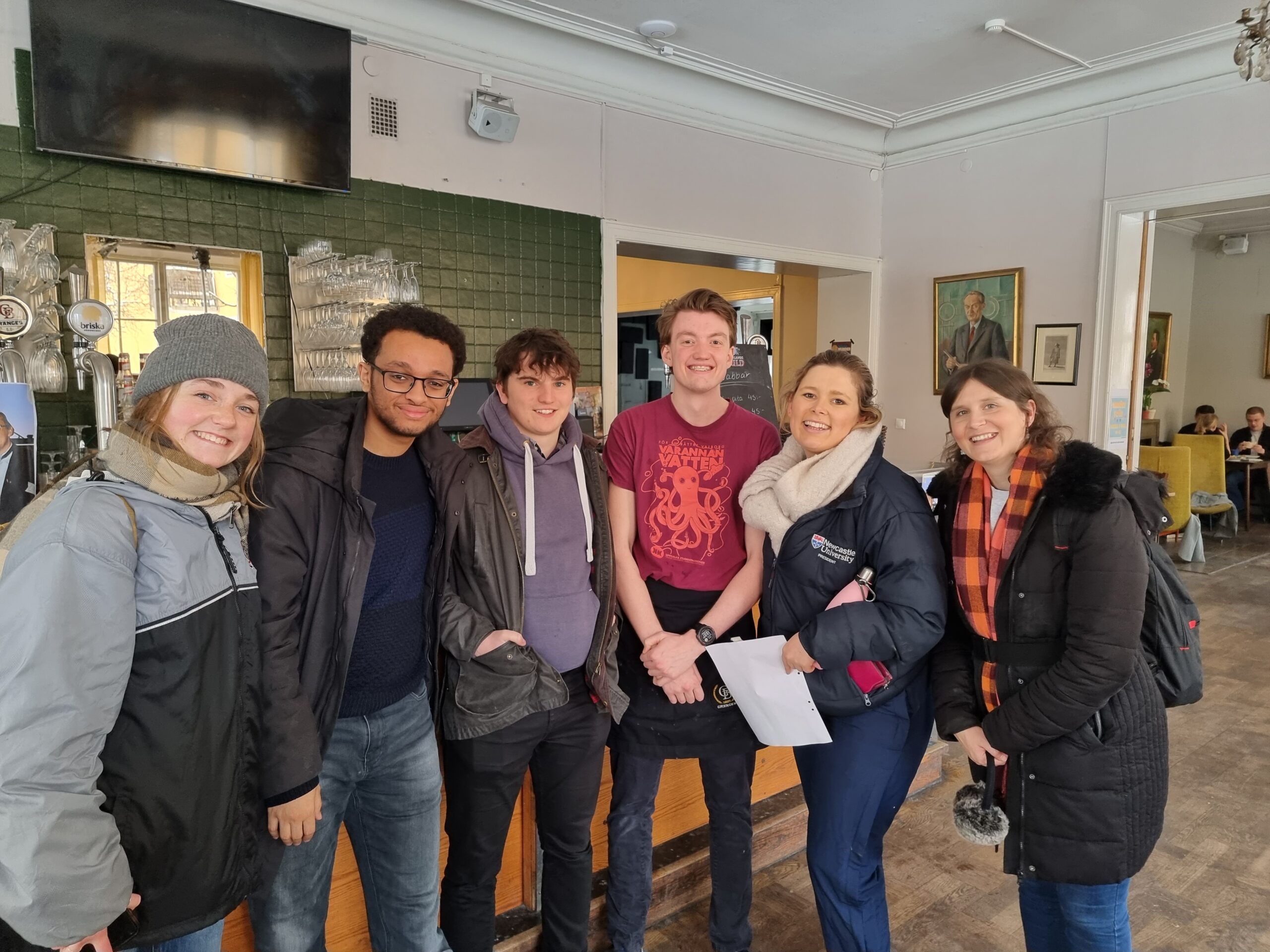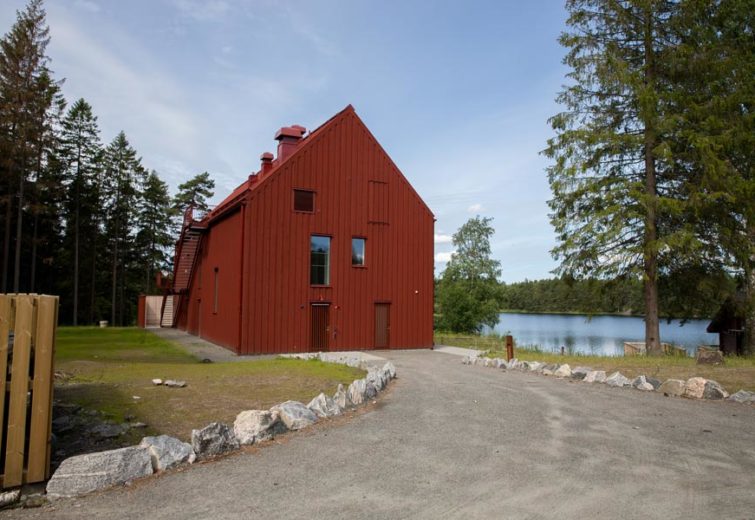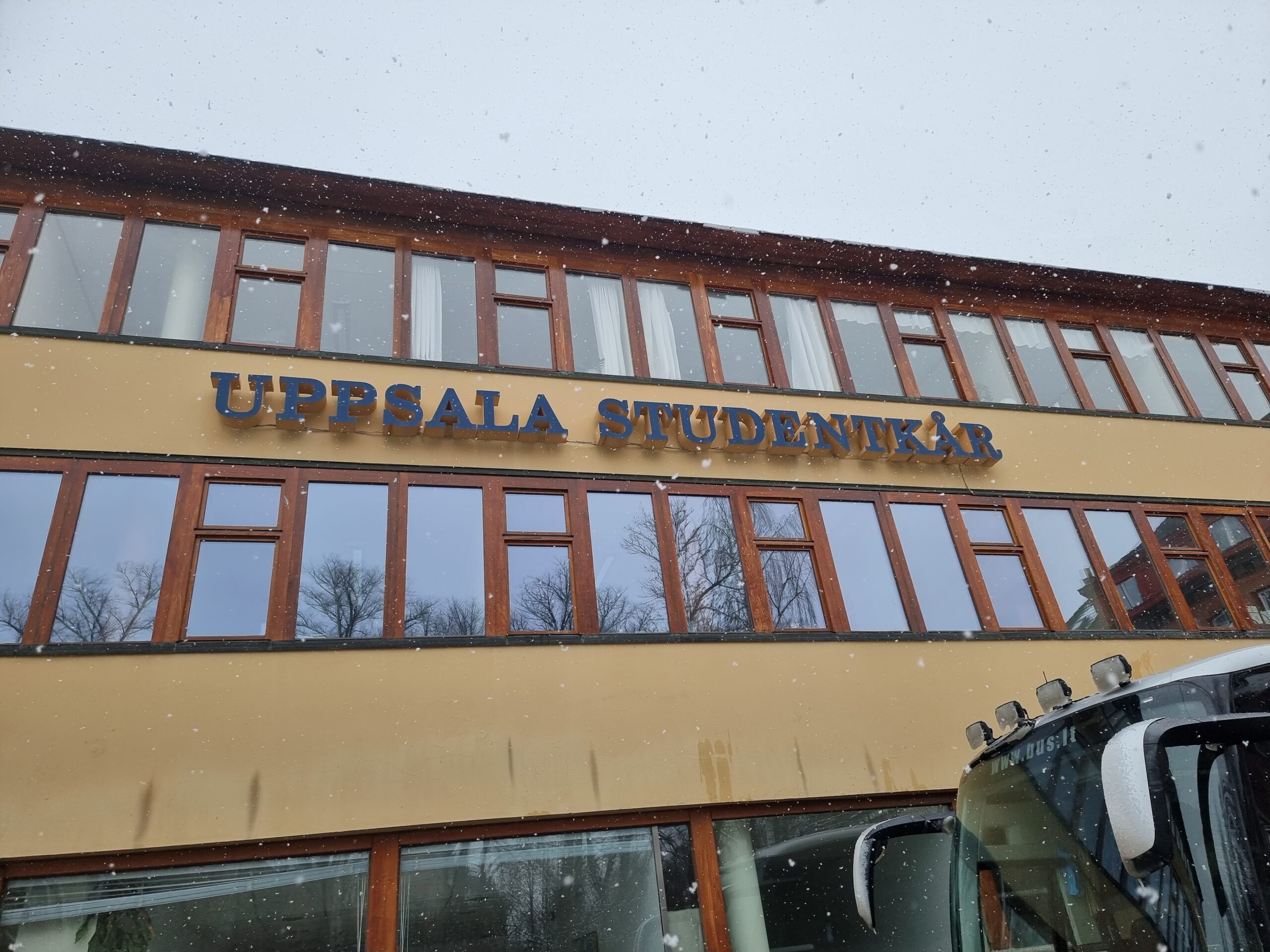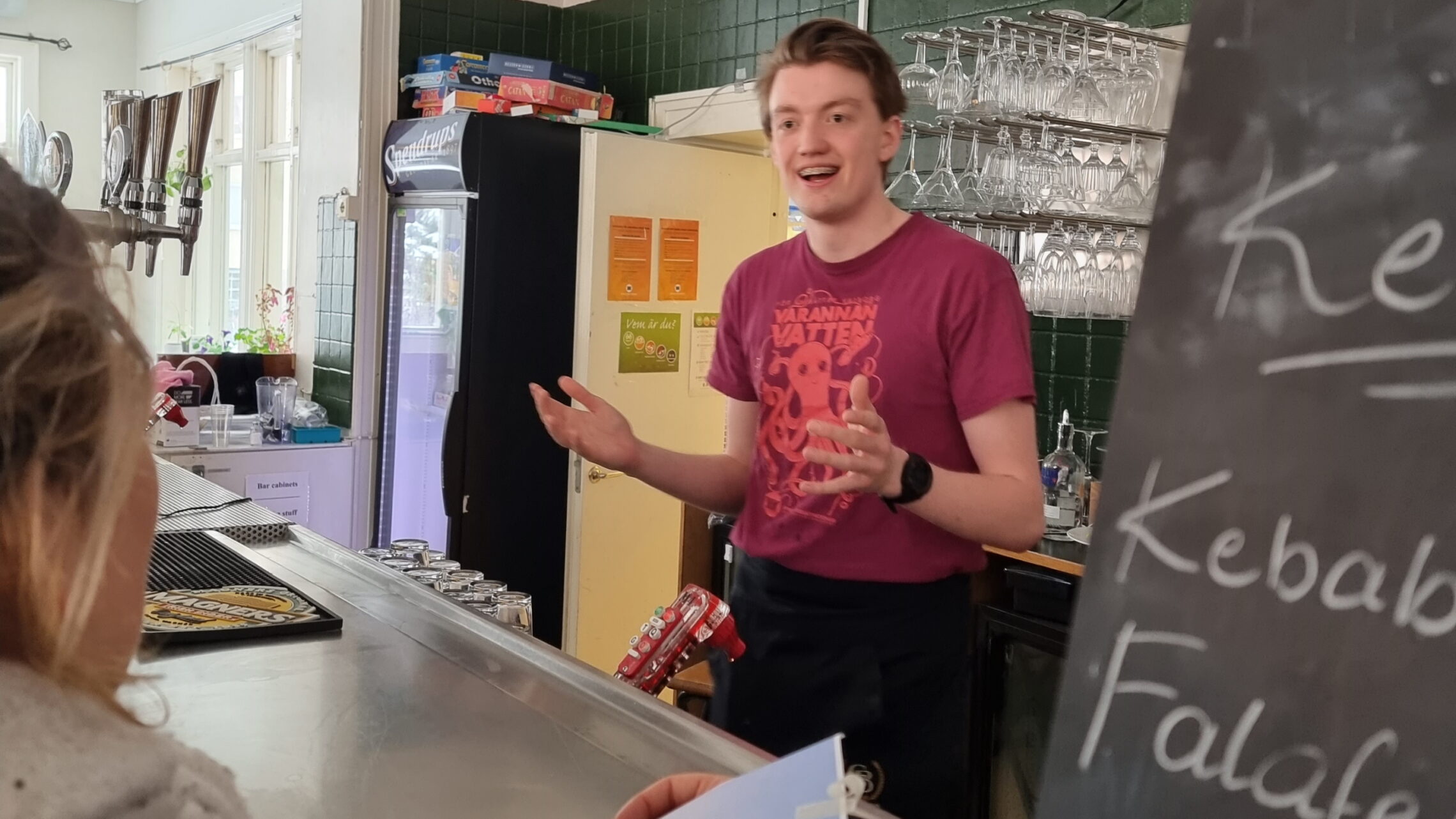If you’re a student in the UK that’s not in a hall of residence and you miss the Freshers’ Fair, unless your coursemates are particularly friendly or you happen to find a friend while the SU wristband club night is playing the theme from Baywatch at a louder volume than is reasonable, you’re pretty much on your own.
To be honest, everywhere we’ve been on the Wonkhe SUs study tour around Scandinavia appears to do welcome, bonding and friendship-making better than the average UK students’ union.
At KTH, the SU consists of 22 different “chapters”, each of which is connected to different areas of study. They represent students and train reps to develop the quality of education, maintain links with businesses that employ graduates and run “chapter halls”, spaces where students can heat food and play board games. Every August the chapters collaborate to put on inspirational lectures, teambuilding events, campus tours and parties where the focus is on getting to know course mates, older students who might be mentors, and people from entirely different programmes.
Meanwhile at Sweden’s oldest oldest university (est 1477) students join clubs and societies and their own subject-based section – but almost everyone also joins something called a “nation”. Dating back to the 17th century, they also arrange activities and events for students and provide spaces for students to meet, talk and enjoy life outside of the classroom. Each is named after a specific region in Sweden, and traditionally students joined the nation representing the region they were from.
That’s how they cinnamon roll
On the Saturday that we visited the Östgöta nation, students were enjoying a hot meal cooked by fellow volunteer students in the nation’s kitchen. And in the Smålands nation, we met a volunteer host who was making sure that students meeting there were topped up with coffee and cinnamon buns at their regular Fika event. There is a student mental health issue in Sweden – but it’s telling that when we think of the word Fika and mental health in the UK we’re thinking about an app – in Sweden they’re thinking about the peer support that comes from social capital.

Each of the nations – which offer everything from accommodation to alumni scholarships – tends to describe its buildings dotted around Uppsala as “second homes”. This concept of “third space” is important to the student experience in Sweden – somewhere obviously owned and shared by students where they can hang out, talk and “be” with others that is neither the home nor the work/study space. That it has been pretty much value engineered out of student accommodation in the UK and is pretty much absent from most campuses should cause us to reflect.
Even when we are talking about university rather than student-run services there are inspiring differences. At Jönköping university, the student services function isn’t focussed around the notion of a “service” but framed around positive health- “a rock to hold on to when the gale blows”- and features a light room designed by the engineering students, as well as counselling and public speaking classes to build students’ confidence. Naturally it has its own student committee.
That kind of provision derives from the legal framework for HE in Sweden, which as well as guaranteeing student influence makes provision for the study environment that students are entitled to too. Universities are thus legally responsible for providing students with access to healthcare (in particular preventive health care) to promote the physical and mental health of students, and have formal duties around welfare and careers support.
There are also HE specific anti-discrmination measures, a duty to insure students and specific standards for student disciplinary processes. Quite how these don’t figure in the OfS regulatory framework continues to baffle me, and it would be shameful if the Welsh government misses its opportunity to address these types of issues in its new legislation and associated commission.
Blankets are available
One thing we saw plenty of in the “health” space was a focus on the outdoors, despite the punishingly cold weather. Sometimes that’s about student led events and festivals – in Uppsala on the 30th of April, “Walpurgis Eve” is the celebration of spring arriving in Sweden. It’s the largest student event of the year with the “Donning of the [graduation] Caps” at the domineering library building, student floats running along the Fyris River and student singing at the Gunilla Bell Tower.
Meanwhile at Chalmers university at the shores of lake Sandsjön, students can hire saunas, cabins and have recently been able to take part in a competition to design tree houses that students will be able to rent to get closer to nature, write up their thesis or just de-stress. It makes a change from awareness weeks and baskets of fruit.

And it’s important to stress the work that’s focussed on education too. At KTH EduConference is hugely popular student led-conference event that aims to find new ways to improve education, teaching, support and so on – and includes inspirational talks, innovation labs and discussion groups with academics and professional services staff. And at Uppsala every year the SU publishes something it calls the “Literature Review” – a project that involves students from different disciplines having the opportunity to review their course literature based on a number of issues related to diversity, equal opportunities and norms.

This year’s report focuses on socio-economic background – questions reflected on which cultures and groups are mentioned in the course materials and the document offers a new perspective on how the actual writing of materials can be sensitive to socio-economic background in particular. Students at Uppsala say that it is important to distinguish between “a scientific language” and “a language that cements social and societal structures”. It’s the sort of thing that would get these dedicated volunteers on the front page of the Mail in the UK.


















